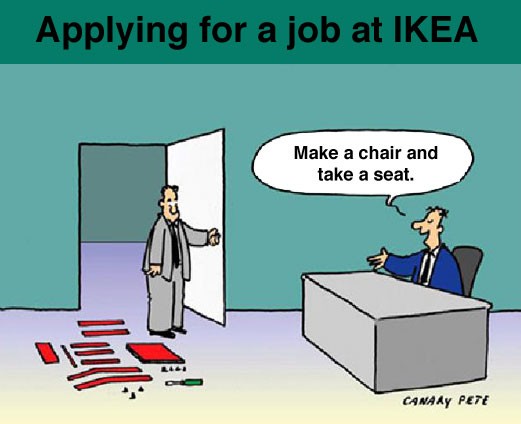Have you explored the value of testing for practical skills when interviewing?
Job interviews don’t always start and end with the exchanging of questions. Many include testing of practical skills. Employers integrate this testing into their interview structure to gauge an applicant’s level of competency in a particular area. It is a widely utilised technique and can be very valuable in appointing the right person for all levels of hire.
Job testing can present in many forms including personality, psychometric, drug and even physical testing. We’re concentrating on practical testing. Practical or work sample testing focuses on exercises or activities similar to those required in the job. They can include driving, typing to speed, writing a press release, role playing a sales pitch, proof reading a document, sorting and prioritising an overflowing in-tray, identifying a computer glitch, or even solving a complex mathematical problem. The individual tasks of the role will determine the relevant test or tests to be administered. You may even find it necessary to assess an applicant in a group or social situation to truly gauge how well they perform under these conditions.
When employing a practical test to gain further information about an applicant’s abilities, it is best to limit the time of your test to thirty minutes or less. The test is dependent upon the role and generally only completed by those short listed for interview. Some jobs attract hundreds of applicants, so why would you spend time assessing everyone when not everyone is qualified to undertake the role? It is best to focus on the top candidates only and find the one that shines most brightly for you. Yet surprise testing is no fun. Always communicate to your interviewees that you will be subjecting them to a practical exercise and explain the nature of the assessment. If necessary, send them information to study beforehand.
The relevancy of testing in the interview stage is close to home for many employers. I’ve spoken to a host of organisations that have been ‘burnt’ by candidates claiming they are able to perform certain tasks to a high level when in fact their competency level was quite poor. Understanding that a candidate’s resume is a glowing reference of their working achievements, you will know that it cannot conclusively tell you how good they are at performing the essential tasks of the role on offer. For example, the candidate may deem their abilities to manage a difficult customer over the phone as exceptional, yet upon testing it may be revealed that they have much to learn. If not for the test your inbound customer complaints may actually have escalated with compensation to customers increasing. It would be music to your competitors’ ears as they engage in an assault to lure your unhappy customers from you.
Failing to identify the right applicant can have further catastrophic outcomes for a business. A new client recently came to me with a predicament that centred on the poor appointment of a team manager. The traditional interview format gave them the belief that the new manager possessed all the necessary qualifications, skills and experience to perform to a high standard in leading their talented team. Unfortunately this was not the case. On paper the candidate glowed. In person the candidate had all the right answers. In reality, the members of the team were far more advanced in skill, knowledge and experience. The poor appointment resulted in the loss of several highly valuable staff within that team as they were not prepared to follow someone so incompetent. I now have the task of finding a new manager for my client as well as several other roles within that team. I will be employing some practical testing techniques to identify the right candidate for each of the roles.
Testing beyond questioning provides an important 360 degree approach. If you have conducted many interviews you will know that some candidates present amazingly well under Q and A conditions, while others who don’t excel at this, do so at demonstrating their skills. By providing a fairer performance platform for candidates, you can fill in the gaps that a normal interview may not showcase. Skill based testing can also tell you a lot about a candidates ability to analyse, make decisions under pressure without compromising accuracy, manage their time, organise competing priorities, and communication. It is an insightful addition to traditional interviewing.
In an ever competitive world businesses need to make the right decision about candidates the first time. Selecting the wrong applicant can see months of costly delays and negative affects to other staff members’ performance. So take another thirty minutes and find the right candidate for the position.
We offer a variety of testing at SJ Personnel, please contact info@sjpersonnel.com.au for more information.








